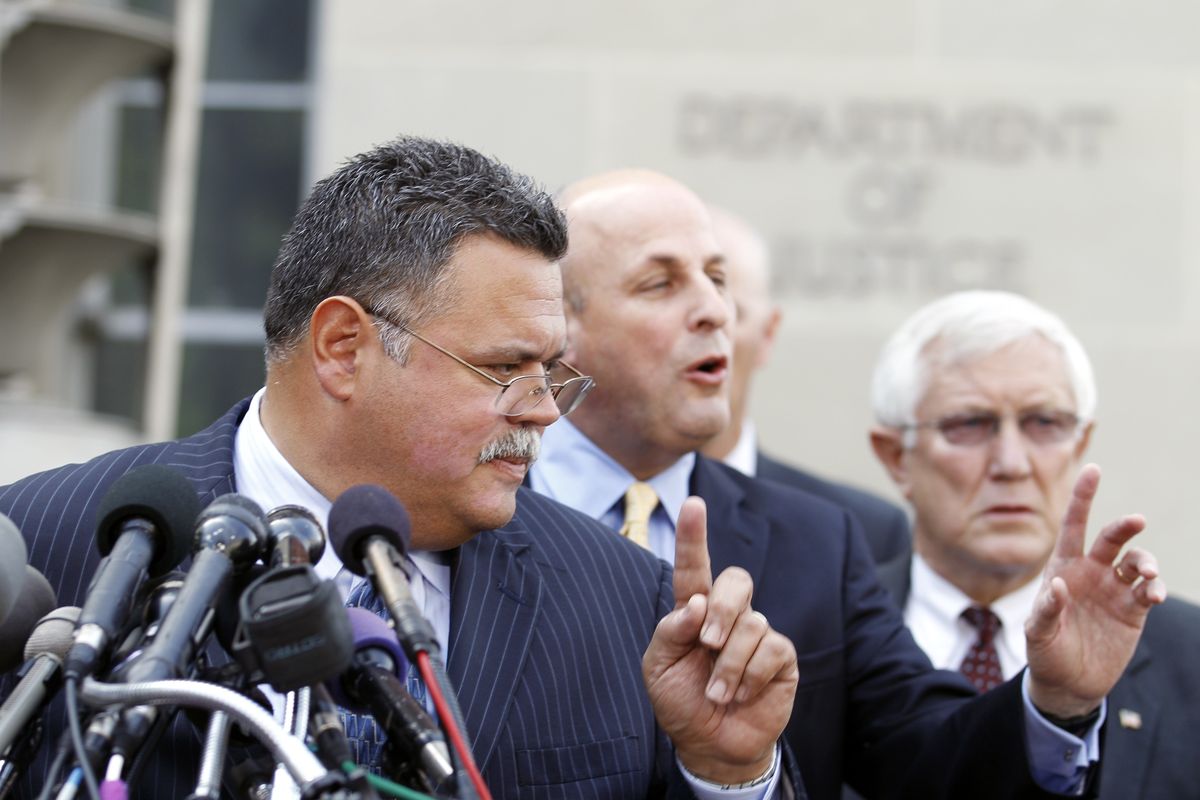Arizona law faces federal challenge
Justice Department readying legal action

WASHINGTON – Top Justice Department officials have drafted a legal challenge that could be filed in federal court in Arizona asserting that the state’s new immigration law is unconstitutional because it impinges on the federal government’s inherent authority to police the nation’s Southwest border with Mexico, sources said Wednesday.
At the same time, the government officials said, the department’s civil rights division is considering possible legal action against the law on the basis that it amounts to racial profiling of Latinos who are legally in Arizona but conceivably could be asked to provide documents proving their citizenship.
Attorney General Eric Holder on Wednesday met with 10 police chiefs who object to the law, and he promised them he would act on the recommendations “soon,” a spokesman said. The police chiefs urged him and the Obama administration, which has reservations about the Arizona law, to stop it from going into effect because they said it would seriously hamper local police work if officers are asked to serve as border police.
“He did say that the Justice Department is seriously considering what they would do and that (it) could come very soon,” said Chuck Wexler, director of the Police Executive Research Forum, a think tank that helped coordinate the meeting between the police chiefs and Holder.
One of the chiefs who met with Holder was Los Angeles Chief Charlie Beck, who said afterward that he told Holder that “legislation like this inhibits us from doing our jobs” and will deter immigrants from reporting crimes, either as victims or witnesses.
“The fear of the police already inhibits immigrants from coming forward to a certain extent,” Beck said. “But if you add this, you increase the reluctance tenfold.
“People should remember that undocumented immigrants are witnesses in all kinds of crime and this does not just affect them. If people don’t come forward to help the police solve … crime, no matter what their status, then we are doomed to failure. It threatens to destroy a lot of the work that has been done.”
A dozen or more states are considering legislation mirroring the Arizona law, which goes into effect in July. That groundswell of support is part of what is pushing Holder and the White House to consider swift action against the Arizona law.
Matthew Miller, the Department of Justice’s chief spokesman, acknowledged that Holder told the police chiefs that a decision on any federal action will come “soon.”
But, Miller also cautioned that “the review is still on. There’s really not been any decisions yet. We’re still working on it, and it’s still being discussed internally.”
He declined to say whether a decision is imminent or discuss which proposals the department was leaning toward. Nevertheless, Miller said that the meeting with the police chiefs was very helpful.
“The attorney general thought the police chiefs raised important concerns about the impact the Arizona law will have on the ability of law enforcement to keep communities safe,” he said.
Echoing concerns from President Barack Obama and from Holder, the chiefs told the attorney general during the closed-door meeting that the problem with the Arizona law is that it will break down trust between victims and witnesses of crimes and the police officers in their communities. Two of the chiefs meeting with Holder are from Arizona: Roberto Villasenor, of Tucson, and John W. Harris of Sahuarita, who also serves as president of the Arizona Association of Chiefs of Police.
Under the Arizona law, police are required to ask for documents from people who are stopped because of a “reasonable suspicion” that they are in the country illegally. The offense would be similar to criminal trespassing, and violators would then be turned over to federal authorities for deportation.
Despite the opposition to the law from the Obama administration, many Americans support it; some polls show that up to 70 percent are in favor of giving local police the authority to check on someone’s legal status in the United States.
Likewise, not all top U.S. police officials are against the law. In Arizona, some wholeheartedly support it. They include Maricopa County Sheriff Joe Arpaio in the Phoenix area, who has long railed against the influx of undocumented immigrants there, and Pinal County Sheriff Paul Babeu, head of the Arizona Sheriff’s Association.